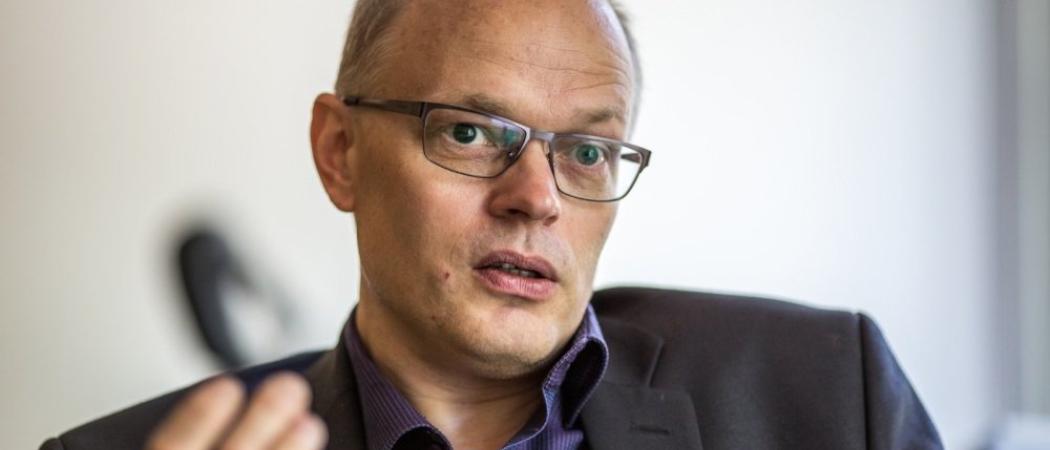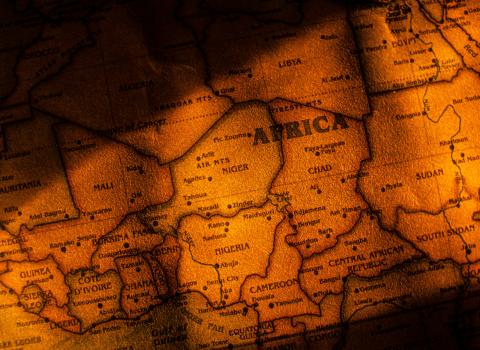Ülo Niinemets, an ERC grantee and plant physiologist, wants to change the way we think about plants and climate

Ülo Niinemets
In science, investment in even the most exotic fields can pay off.
After years of study, Estonian researcher Ülo Niinemets wants to use plant science to revolutionise climate change models and increase crop yields in agriculture.
With the support of a grant from the European Research Council, Niinemets, who heads the department of plant physiology at the Estonian University of Life Sciences, is looking at the kind of chemicals that plants emit when stressed by drought or other factors – and how that affects the atmosphere and climate.
In most climate models, plants are ‘good’ – that is, they absorb climate-warming CO2 and release oxygen. But, says Niinemets, it’s a lot more complicated than that.
Plants emit thousands of different volatile organic compounds that alter ambient air chemistry and can play a major role in climate. Oaks, for instance, under normal conditions mainly emit isoprene that can lead to enhanced oxidative harmful atmospheric conditions and cause photooxidative smog. But Niinemets says that, under stress, all plant species can emit far more complex mixtures of volatiles that can cool climate due to their role in cloud formation. Also, stress due to sharp fluctuations in temperature, light and humidity leads to lower photosynthesis rates in leaves.
Until recently, climate models have not been accounting for the impact of these plant emissions on the Earth’s atmosphere. “These models did a bad job,” says Niinemets.
But thanks to his research, the next generation of climate models will consider plant emissions and other factors which were omitted until now. “We made quite a bit of progress from previous models,” Niinemets says.
Niinemets has been studying botany and plant physiology for the past 30 years, in Tartu, Utrecht, Hawaii and New Zealand. But he returned to Estonia to apply what he has learned abroad and build his own research lab in Tartu.
His research also has industrial applications, particularly in what’s called ‘precision agriculture’. Based on his research, farmers could detect stressing factors in their crops more precisely, such as fungi in wheat fields, and “easily raise productivity by 50 per cent,” says Niinemets. Forestry managers could also utilise this method of measuring stress to stop pests that attack trees.
To move this idea to the market, “we only need to collect knowledge and apply it,” says Niinemets.
The next step would be to consolidate more research groups in the field to further develop a standardised analytical tool for accurately measuring how plants affect the biosphere. Niinemets’ group is already looking to expand their research to other ecosystems in other regions of the globe, hoping to better understand how plant trace gas emission affects Earth’s climate.
But this poses some immediate challenges, as the technology is still in its infancy, measuring plant emissions is costly and there are not many groups of scientists who work on the topic yet.
Improving Estonian R&D
Niinemets is one of the Estonian researchers joining forces with the Estonian Academy of Sciences to improve funding opportunities for young scientists and create viable merit-based science career models. “Things are moving little by little,” Niinemets says.
Since 2012, Niinemets has been advising the Estonian government on education and research, as a member of the Science Policy Commission.
According to him, Estonia is making a lot of effort to improve the contribution of science to society and to reform its research system, but researchers there still depend to a large extent on European Union structural funds, a form of regional development spending that can include research and innovation topics.
But Niinemets would like to see the paperwork involved in getting EU money reduced. For instance, he says EU efforts to simplify grants under its flagship Horizon 2020 programme are fine, but a shift in Brussels towards measuring the impact of research is also increasing the bureaucratic burden of scientists.
While evaluating the impact of science is “fair”, he says, “science should not focus on short term goals.”





 A unique international forum for public research organisations and companies to connect their external engagement with strategic interests around their R&D system.
A unique international forum for public research organisations and companies to connect their external engagement with strategic interests around their R&D system.